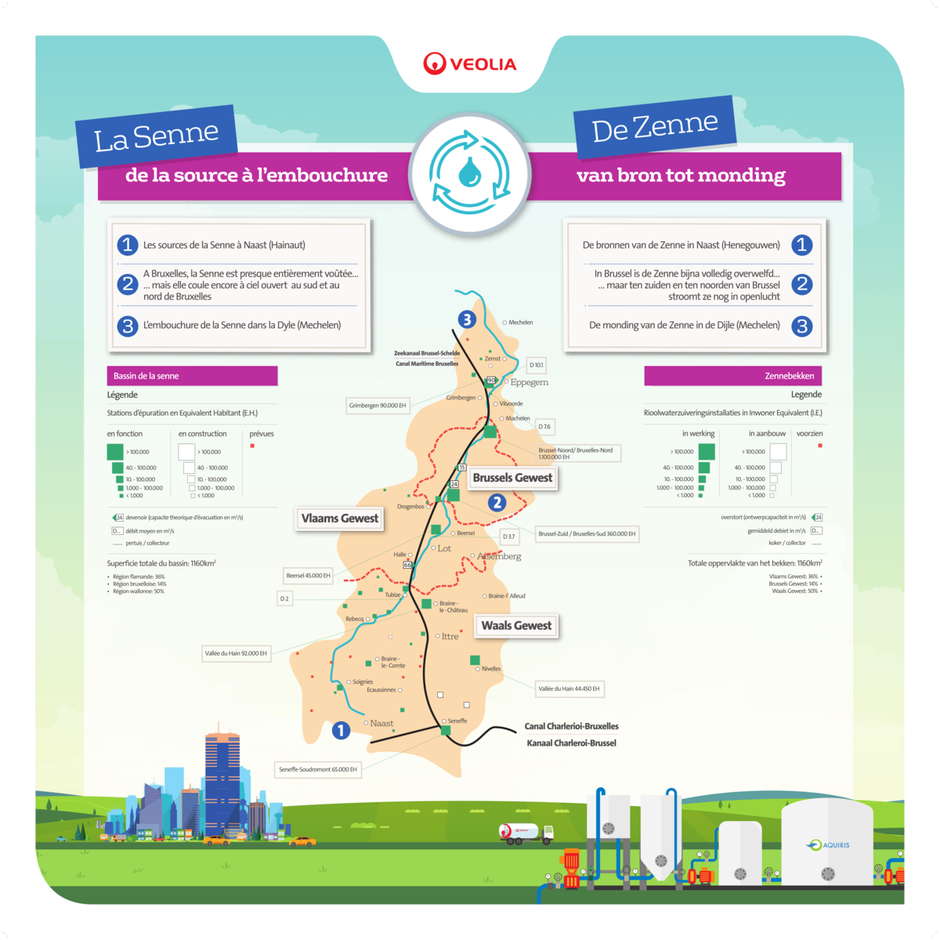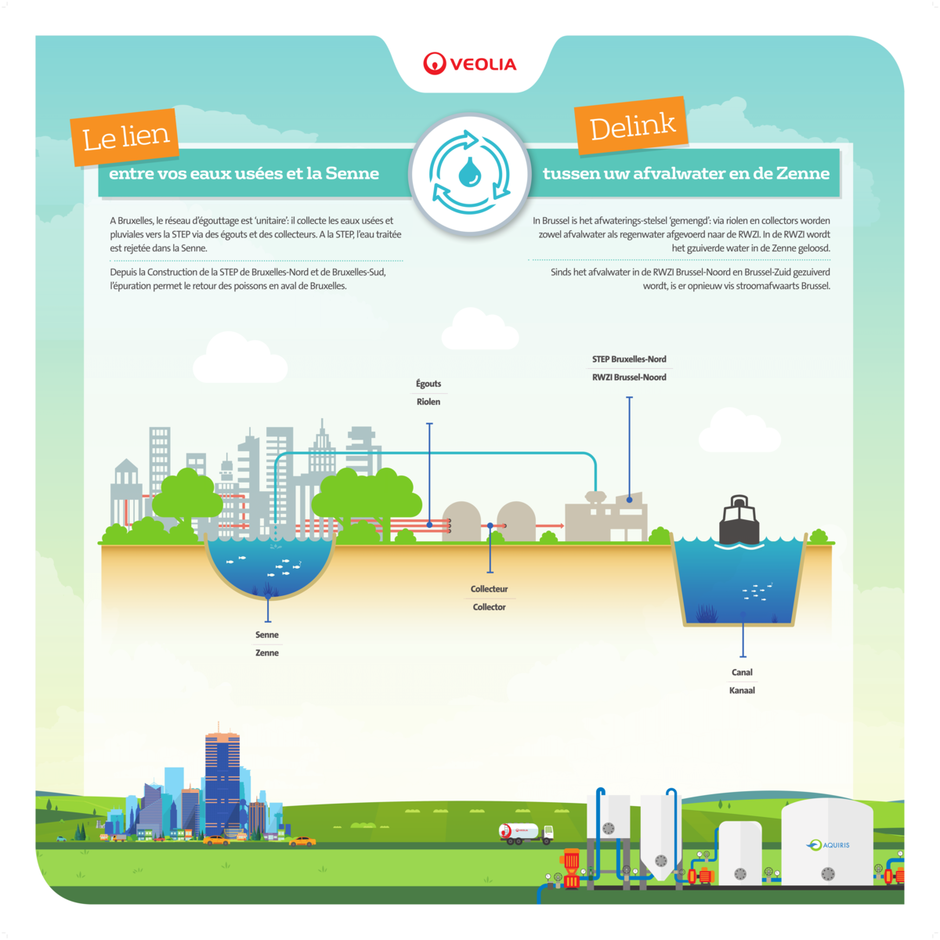The Senne is the natural receptacle for wastewater
The Brussels-Capital Region is part of the Senne hydrographic basin, which is part of the Escaut basin. It has facilitated the development of craft industries and commerce since the 11th century, including ventures like tanneries, dyeing, brewing, vinegar-making and papermaking. However, in the 16th century, the river became an open drain, and its overflows caused some fatal epidemics.
The first covered drain programme was put into place at the end of the 19th century, when the river disappeared under Lemonnier and Anspach boulevards.
The river's course was diverted during the 1950s, and a second wave of civil engineering work completely covered the river from Rue des Vétérinaires to Quai des Usines, where it resurfaces at the site of the plant.
.
The wastewater management plan
A wastewater management plan was put together in the 1980s to help the Senne regain its original role. The idea was to treat wastewater from the river's three sub-basins, known as :
-
the South basin,
-
the North basin ,
-
the Woluwe basin, part of which is in the Flanders Region.
The wastewater treatment plant
The wastewater from the North and Woluwe basins are treated by the Brussels-North plant, which has a larger capacity of 1,400,000 inhabitants.
At the end of a tender process, the contract, which included designing and building the Brussels-North plant and operating it for 20 years, was awarded to AQUIRIS. Operations started in March 2007.
The construction of the plan
December 1997
Brussels-Capital Region calls for candidates to bid to take part in a public concession including :
- the construction of a plant located in the North of Brussels for the depollution/treatment of waste water for a population of 1.100.000 inhabitant-equivalents.
- the construction of a 6.5 km sewage collector along the left bank of the Willebroek Canal.
- the connection of the plant with the existing sewage network.
- the operation of these works over 20 years.
November 1998
Aquiris, a consortium headed by Veolia Water, world leader in water treatment, is selected by Brussels-Capital Region to bid for the concession.
April 1999
Brussels-Capital Region publishes the tender document.
November 1999
Aquiris submits its bid.
June 2001
The contract is awarded to Aquiris.
September 2001
Applications for town planning and environmental permits are submitted.
March 2002
Permits granted for abestos removal and demolition. Work begins.
June 2002
Permit granted for the construction of the left bank collector.
November 2002
Start of preparatory works on the highways for the construction of the left bank collector.
January 2003
Environmental permit granted for soil remediation work.
June 2003
-
Building permit granted for the construction of the waste water treatment plant. Environmental permit granted for plant operation.
-
Start of plant construction and right bank collector tunnel drilling works.
October 2006
End of construction works. Start of tests.
March 2007
Plant start-up. 20-year operating period begins.






